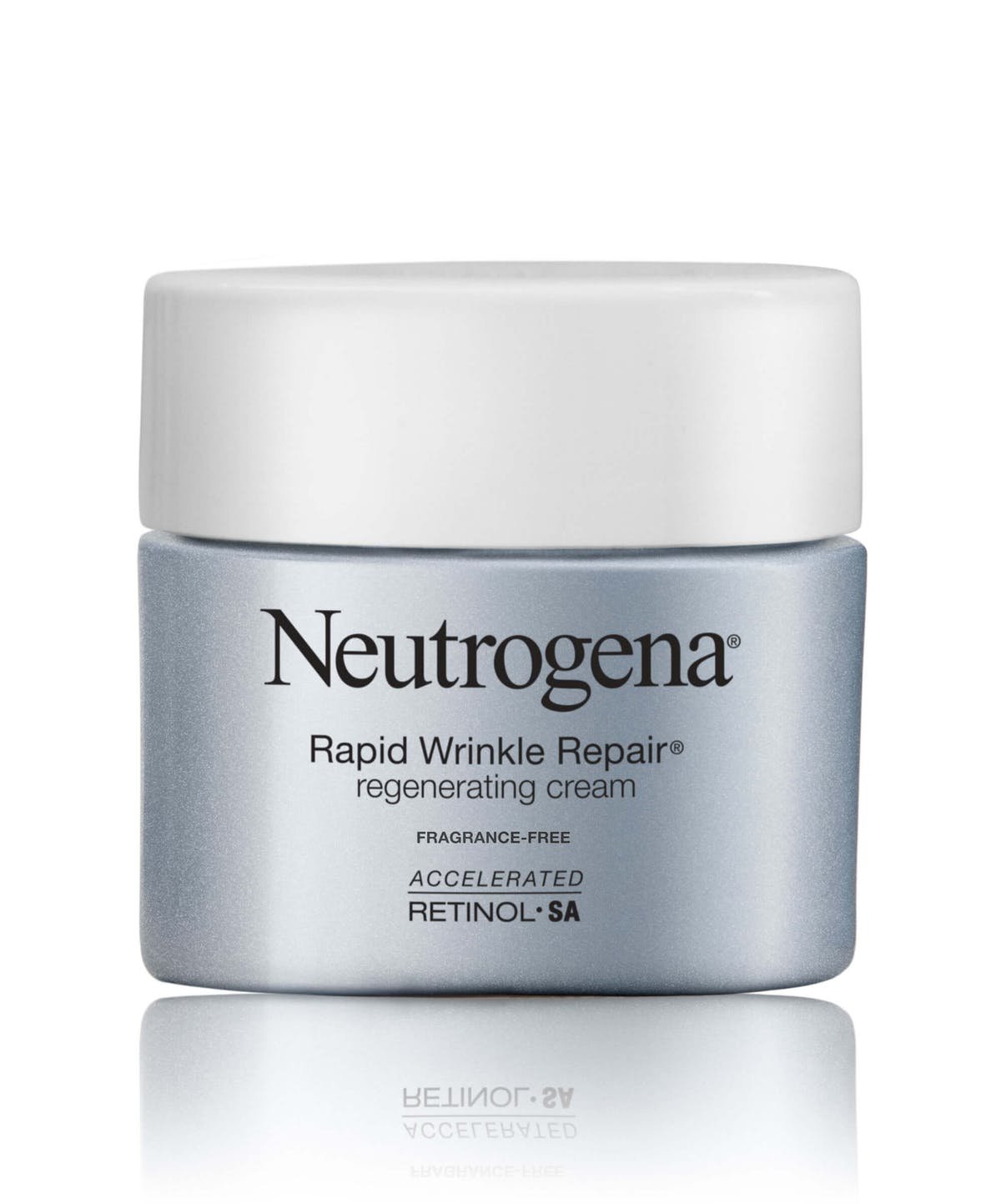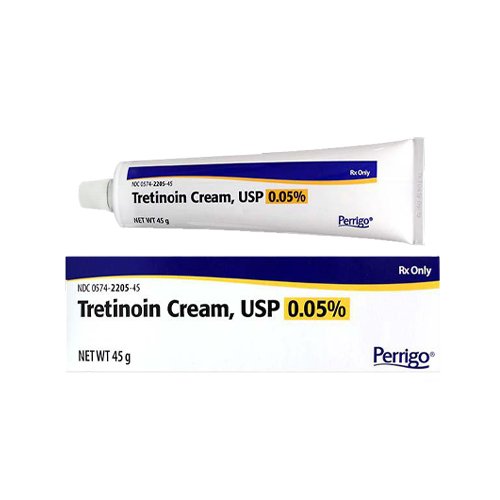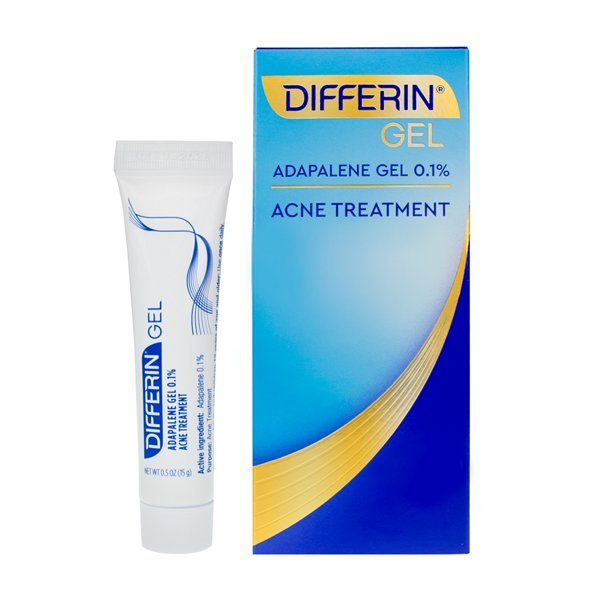RETINoidS
AKA Topical Vitamin ARetinoids are an entire class of chemical compounds that can be purchased with a prescription from your dermatologist in the form of tretinoin (Retin-A etc.), or over the counter in the form of adapalene (Differin), retinaldehyde, and retinol.
When used correctly and consistently, retinoids improve skin cell turnover, decrease hyperpigmentation, balance oiliness, control acne and boost collagen production in the deeper layers of the skin, thereby smoothing out wrinkles and fine lines.
Retinoids can make your skin a bit more photosensitive (sensitive to the sun) and may actually make acne worse before it gets better (skin “purging”), so the ideal time to start a retinoid routine is any time besides the summer. You should always be using a sunscreen during the day regardless (even when you’re inside—UV travels through windows!! Google it!), but definitely, absolutely when you have incorporated retinoids into your skincare routine.
When it comes to retinoids, the key to success is to pay attention to the rest of your skincare routine (be gentle when using retinoids! lay off the scrubbing! lay off the burning hot water! lay off the harsh cleansers (SEE YA FOAMING BUBBLES)! use a moisturizer!) and introduce the retinoid in slowly (1 night a week for the first week, 2 nights the second three the 3rd and so on).
Always apply retinoids at night onto CLEAN AF skin. If you find that you are reacting severely or simply more than you’d prefer, try applying your moisturizer (fragrance free bc fragrance can be very irritating; no BHA, AHA (salicylic, glycolic, lactic… pretty much all of the acids besides hyaluronic acid, which is a whole different thing), or Vitamin C—these ingredients do not mix with retinoids—before the retinoid. ALSO! Skin must be completely dry before applying retinoids (including any moisturizer you decide to use prior) in order to reduce irritation.
<<A brief moisturizer 411: lotion = water based and is less heavy/thick; cream = oil based, is more heavy/thick, and is generally better for preventing trans-epidermal moisture loss (meaning better at keeping your skin moisturized). Do not pick at your skin if it is peeling! You gonna make it worse! Put some cream on there instead. https://www.youtube.com/watch?v=pK9k3yo7fIc >>
So… here’s the rundown:Retinoic acid (tretinoin/retin-a)
Relatively inexpensive with a prescription (your doctor can prescribe for acne only, do what you will with that information).
Retinoic acid has been around for quite some time now and was traditionally thought to only treat acne. In the 80s it was discovered to also have anti-aging benefits such as:
boosting collagen production in skin
improving appearance of wrinkles and fine lines
removing sun damaged skin cells
can remove pre-cancerous skin cells (!!!!!!!!!!!!!!!!!!!!!!!!!!!!!!)
different vehicles available:
tretinoin gel (can be especially drying), cream and lotion (Altreno is the, or a brand name we believe, ask your derm about it if your interest is piqued).
Most fast working form of retinoic acid and also potentially the most irritating. Start with a low % and work your way up (if you and your doc think its necessary).
Adapalene AKA Differin
(La Roche-Posay also sells a version)
Used to only be available by prescription, but you can now buy at your local drugstore, online etc.
Adapalene is a naphthalene derivative of retinoic acid……………. which basically means that it’s a 3rd generation retinoid acid……. meaning it’s delivered to the skin a little differently than tretinoin
Hasn’t been around as long as tretinoin, so there is less data on aging available
Used almost exclusively for acne up until recently. We now have some data suggesting that it can improve sun damaged skin (sun spots etc.).
Unlike other vitamin A derivatives, adapelene is Stable in the presence of light, so you can use in the mornings if you’d like. STILL!! Don’t mix with vitamin C (vitamin C is in a lot of sunscreens and AM moisturizers—check ingredients lists for “ascorbic acid”).
Generally less irritating than tretinoin
Retinaldehyde (retinAL)
Cosmeceutical - meaning it’s not formally regulated/subject to the same data analysis etc. that tretinoin and adapalene are.
Slower, more controlled delivery of topical vitamin A
Less irritating, but will take longer to work (weeks, probably months before you see full benefits re aging, but in the end you should see the same results)
A good option for application to the eye area, which is generally more sensitive than the rest of the face (and body) because the skin there is thinner
Sold and we think developed by Avene. Osmosis also sells a version.
Retinol
Like retinaldehyde, retinol takes longer to work and is less irritating than retinoic acid/tretinoin
Long term, persistent use produces the same results as the “stronger” retinoid acid
Not FDA approved, no regulatory body, so manufacturers can slap retinol on their labels without proving any efficacy, bioavailability etc.
SO, you should be picky about which retinols you buy and apply
The bigger companies (J&J, L’Oreal) are a good bet because they have a longstanding track record of research, development and producing good retinol products
Our top picks are:
Creave resurfacing retinol serum (may be a good option for people w very sensitive skin and rosacea)
Not very moisturizing on its own
Neutrogena Rapid Wrinkle Repair Regenerating Cream—fragrance free (unclear why the name is so dang long)
Can sting when you first apply, but quickly goes away and is very moisturizing
The product in this particular jar is stable, but be sure to properly close after application
If your looking for a one and done night time product, this may be it
Replenix Body lotion
Retinol for your body
Expensive on the whole, but the price per oz is actually not bad
**One issue that you will likely encounter regardless of the form of retinoic acid you opt for is dryness and irritation. Many people will find that they cannot tolerate this ingredient regardless of percentage/strength. More concentrated is not necessarily better because consistency with retinoids is key (you gotta use them over a prolonged period of time to see results!). Start low and slow, there’s no rush, so don’t rush. Slow n’ steady wins the race bbs.
N.B. Bakuchiol (ifyky) is not a retinoid. More on that another day.


